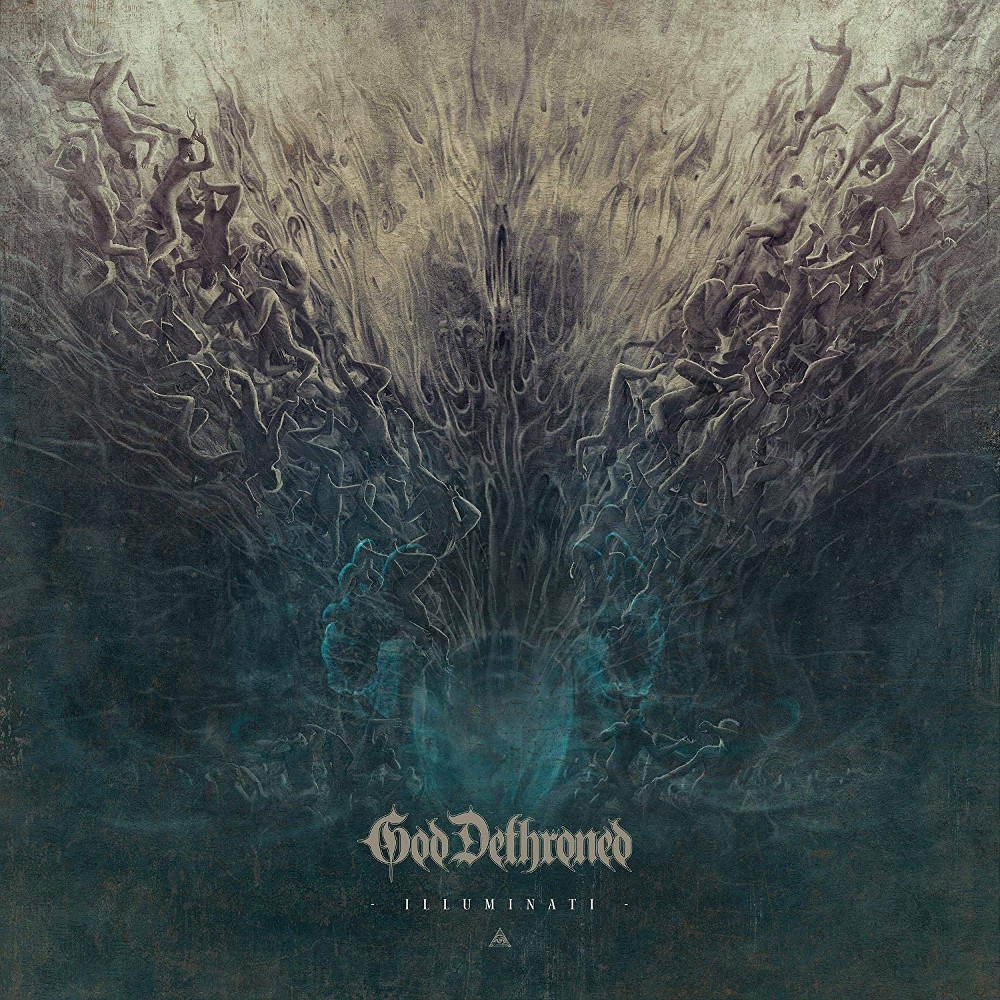 |
Country: Germany/USA
Style: Power Metal
Rating: 6/10
Release Date: 21 Feb 2020
Sites: Facebook | Instagram | Metal Archives | Official Website | Wikipedia
It took me a while to get into this new Demons & Wizards, but I finally got there. Kinda. For my first couple of times through, I was left impressed as always by the vocals of Hansi Kürsch but underwhelmed by the instrumentation from Jon Schaffer which felt overly clinical and even overly repetitive on songs like Wolves in Winter. While I liked some of what I was hearing and some of the shorter songs, like Universal Truth, popped immediately, I just didn't feel the album the way I felt their 1999 debut.
However, while I wasn't feeling this throughout Friday, it suddenly clicked into place on Saturday for me. Why, I have little idea. I can safely assume that the longer songs needed time to take hold and there are three of them here, including the album's bookends. The longest song Demons & Wizards song up until now was six and a half minutes but the opener here is over eight on its own, with nine and ten minute epics still to come. Fifteen years can be a long time in musical development.
I think part of is is also that I had to get used to the drum sound because it feels oddly detached from everything else, like an artificial layer added onto everything else rather than a musician contributing along with everyone else. With enough listens, the importance of that thought lessens and I was able to concentrate more on the songwriting and so start to really feel what these songs are doing.
As you might imagine from the title, this is a third album, but it's so far adrift from the other two in time that I feel that I should introduce Demons & Wizards to those not around as the millennium turned. It's a side project for two major power metal names: Kürsch, the vocalist and main man in Blind Guardian, and Schaffer, rhythm guitarist and main man in Iced Earth. Having been friends for years, they got together to write a well received self-titled debut as a duo in 1999. They followed up with Touched by the Crimson King in 2005 and are finally back with their long awaited third.
In the studio, they're usually a duo and I'm not sure anyone else played on this album, though they bulk up to a full band when touring, of course. The voices are mostly Kürsch, even when he's backing himself or layering voices to overlap lines or to invoke choral mode. Schaffer is credited with backing vocals but I doubt they're prominent. His role here is to contribute all the instruments, mostly guitar and bass but also keyboards and even mandolin. I don't see drums listed, so maybe that disconnected feel comes courtesy of a drum machine. Maybe it's just the mix.
Everything is power, of course, with these two involved. Kürsch sounds epic here, perhaps reconnected to straight power metal after finally finishing up Legacy of the Dark Lands, the orchestral album he's been working on for over twenty years. That makes this his second full length release in four months. There's a tone to his voice that makes him quintessentially power metal and there are quite a few points here when he's achingly definitive. The entire genre could die and lie buried for decades but one new Hansi Kürsch release is all it would take to seem instantly alive and well.
This album works best when Schaffer finds a similar epic feel but that isn't anywhere near as often as I'd like. It's there on Timeless Spirit, the nine minute that gets goth and western and all sorts of other things as it trawls us in. It's a real grower: I didn't like it first time through but it's very possibly my favourite song now. It's immersive, easy for us to get lost in, contrasted with Dark Side of Her Majesty, which runs exactly half the length and carries much more urgency and impact. I like the latter song but, every time it ends now, I want to go back to Timeless Spirit again.
With nothing particularly fast, I shouldn't be as surprised as I am to find influences from bands like AC/DC and W.A.S.P., especially on Midas Disease, which at points feels like a duet between Kürsch and Blackie Lawless, who's not involved in the slightest. Maybe that's why Schaffer chugs so damn much, because this is one of the guiltiest numbers on that front. Wolves in Winter chugs and chugs and chugs. Split chugs and chugs and chugs, even though it's elevated by a really cool riff. So much of this is chug chug chugging and it gets old.
As you can probably tell, I have a bit of a love/hate relationship going on with this album. I didn't feel it, just enjoying some of the shorter songs; then I did, connecting with the longer material; but as a full album, and an hour-plus album at that, it still manages to drop out of entertaining me to annoy me and that's never good. I started out with a 5/10 and jumped up to a 7/10 but feel as guilty going that high as that low, so it's a 6/10 for now.




















